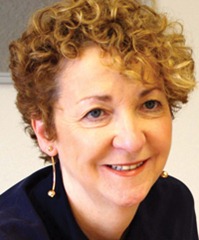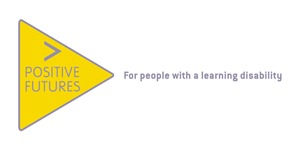The benefits of community services
 Positive Futures is the leading local charity for people with a learning disability. Its Chief Executive, Agnes Lunny OBE, talks about issues and evidence around community-based support services.
Positive Futures is the leading local charity for people with a learning disability. Its Chief Executive, Agnes Lunny OBE, talks about issues and evidence around community-based support services.
Positive Futures provides support for people with a learning disability and their families that’s centred in the local community. For us, it’s ability rather than disability that’s the core issue.
We see and believe in people’s abilities and provide support that helps people with a learning disability to live life as fully as possible. This happens when people have the right support, so that they can live in – and be an active part of – their community.
So, what are the key considerations around community-based support for policy-makers, funders, service providers and people who use these services?
A right to equal citizenship
First, it is important to recognise that people with a learning disability have the right to live in the community as equal citizens and that the available evidence indicates that people experience better outcomes when institutions are replaced by community-based services.
However, better outcomes do not follow automatically, as developing appropriate services in the community is a necessary, but not a sufficient, condition for better results. In other words, the impact of a service depends upon its quality.
Characteristics of community-based support
These services are flexible, so that people with disabilities can live in the way they want, with the support they need. They are characterised by:
• Ensuring that the individual and their family has choice and control;
• Separating accommodation from support, by focusing on the needs of the individual;
• Having equal access to the same services as everyone else.
The key point is that this support puts the individual at the centre and ensures that people have the right level and right kind of support, so that they can participate fully in the life of the community and have control over their lives.
Costs, needs and outcomes In community-based support, links between costs, needs and outcomes are complex. People require differing levels of support, their needs change over time and many partners and funding sources are involved. The direct costs of community-based support are balanced by ‘spin-off’ economic benefits. For example, the long-term health and employment prospects of carers often improves, which places fewer demands on health services, can reduce dependence on benefits and can help the local economy, as people gain employment and have more disposable income.
In good care and support systems, the costs of supporting people with substantial disabilities are usually high, wherever they live. It follows that policy-makers should not equate community support with low cost.
On the other hand, there is no evidence that, when compared objectively, community-based models of care for people with a learning disability are inherently more costly than institutions. In fact, there is evidence that they are more cost-effective. The critical point is that good, individually-tailored community-based support delivers better outcomes.
In the past, models of service provision focused on the need to ‘protect’ and to ‘do for’. This created a culture of dependence on the state. In contrast, community-based approaches put the person and their family at the centre, listen to what people want and need and provide them with the support, information, knowledge and skills to get on with their lives.
A final point is that building the capacity and confidence of communities to include people with a learning disability and
their families is critical to the development of effective community-focused approaches. Positive Futures has found that communities want to include every citizen and that engaging the wider community adds significantly to the impact and cost-effectiveness of community-based services.
 Find out more about Positive Futures and community-based support:
Find out more about Positive Futures and community-based support:
www.positive-futures.net
T: 028 9147 5720





